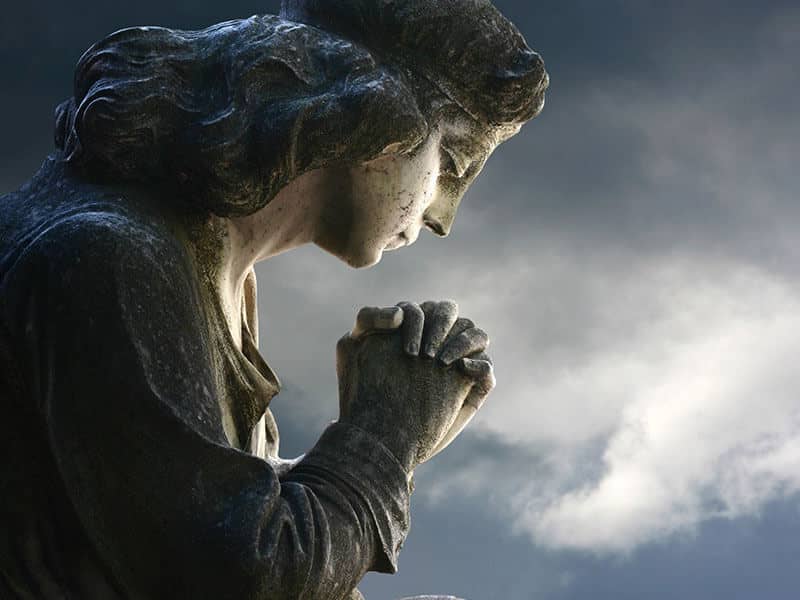Lindbergh became an international hero, winning a $25,000 prize and the admiration of millions for his daring feat. But is it possible that Heaven intervened to sustain him on his trip—and bring him safely back to earth?
Just before 8 A.M. on the morning of May 20, 1927, Lindbergh took off from Roosevelt Field, Long Island. The ground was wet; the takeoff was sluggish. Lindbergh had carefully supervised the building of his plane, “The Spirit of St. Louis,” but had equipped himself with only four sandwiches and two canteens of water for the long flight.
Lindbergh flew northeast along the New England coast until he reached St. Johns, Newfoundland. In an era before air travel, people all along the route scanned the sky, waiting for a sight of the small plane. Others, not so lucky, waited by their radios for news of the flight. At Newfoundland, Lindbergh headed east across the Atlantic as the sky darkened. He was alone, with only a compass, an airspeed indicator, and luck to navigate toward Paris.
Writing in his memoirs, Lindbergh remembered watching darkness descend and a thick fog form over the ocean: "Darkness set in about 8:15 and a thin, low fog formed over the sea....This fog became thicker and increased in height until within two hours I was just skimming the top of storm clouds at about ten thousand feet. Even at this altitude there was a thick haze through which only the stars directly overhead could be seen. There was no moon and it was very dark."
Hours passed. Though cold, lonely and tired, Lindbergh had to stay alert: to doze off would mean certain death in the icy Atlantic. The isolation and weariness made Lindbergh meditate on the nearness of death as he piloted his small plane across the dark ocean.
But as the miles rolled on, Lindbergh increasingly felt that he was not alone. Behind him, in the fog, he saw human forms, transparent and weightless.
Surprisingly, Lindbergh didn’t feel afraid. In his book, The Spirit of St Louis, he recalls his experience as if it were happening all over again: “Without turning my head, I see them as clearly as though in my normal field of vision. There’s no limit to my sight—my skull is one great eye, seeing everywhere at once.
“These phantoms speak with human voices—friendly, vaporlike shapes, without substance, able to vanish or appear at will, to pass in and out through the walls of the fuselage as though no walls were there. Now, many are crowded behind me. Now, only a few remain. First one and then another presses forward to my shoulder to speak above the engine’s noise, and then draws back among the group behind. At times, voices come out of the air itself, clear yet far away, traveling through distances that can’t be measured by the scale of human miles, familiar voices, conversing and advising on my flight, discussing problems of my navigation, reassuring me, giving me messages of importance unattainable in ordinary life.”
It was some time before Lindbergh saw his first sign of human life. Far below, he saw a fishing boat, and then several more. Within an hour land appeared: the coast of southern Ireland. Shortly afterward, Lindbergh was circling the Eiffel Tower, and then heading towards the lights and runway of Le Bourget, the Paris airfield.
The roads around the field were jammed with cars; as Lindbergh landed he had to stop the engine quickly to avoid hurting anyone as the crowd came rushing forward. He opened the door of the cockpit and was immediately hoisted onto the shoulders of the local gendarmes, who carried him through the cheering crowd.
It was over a quarter-century later that Lindbergh first publicly acknowledged his vision that remarkable night. It didn’t take away from the worldwide acclaim and lasting fame that he had earned. If anything, perhaps, his brush with angels made it stronger.
| _Related Features | |
|
|
|
 |

